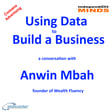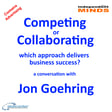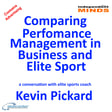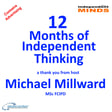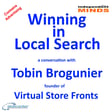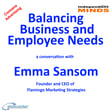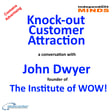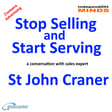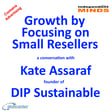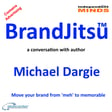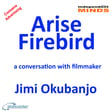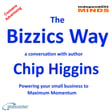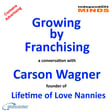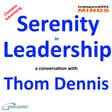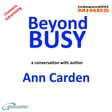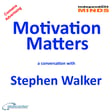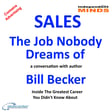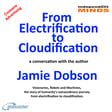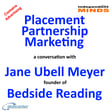
The Leader as Coach – a conversation with author Ed Temple MCC
A simple and accessible coaching model
Ed Temple MCC is an executive leadership coach at Bright Wire Leadership in Calgary in Canada. He is also a programme chair at Lethbridge College.
He is the author of The Leader as Coach, creator of the SPROUT coaching model and the Enzo coaching support APP.
In this episode of The Independent Minds Ed and host Michael Millward draw parallels between the way the city of Calgary comes together for the famous stampede the relationship building involved in leadership.
Michael and Ed discuss the evolution of coaching and how the different stages of the coaching experience have changed as coaching has developed.
They draw conclusions how to make coaching work. This includes a discussion about
- Personal values
- Definitions of success
- Leadership and coaching
- The challenges of experiencing change
- Perceptions and expectations of coaching
You will leave this episode with a new perspective of the value of coaching.
More information about Ed Temple and Michael Millward is available at abeceder.
Audience Offers
The Independent Minds is made on Zencastr, because as the all-in-one podcasting platform, Zencastr really does make creating content so easy.
If you would like to try podcasting using Zencastr visit zencastr.com/pricing and use our offer code ABECEDER.
Travel
With discounted membership of the Ultimate Travel Club, you can travel anywhere else at trade prices on flights, hotels, trains, and many more travel related purchases.
Fit For Work We recommend The Annual Health Test from York Test; a 39-health marker Annual Health Test conducted by an experienced phlebotomist with hospital standard tests carried out in a UKAS-accredited and CQC-compliant laboratory.
A secure Personal Wellness Hub provides easy-to-understand results and lifestyle guidance
Visit York Test and use this discount code MIND25.
Visit Three for information about business and personal telecom solutions from Three, and the special offers available when you quote my referral code WPFNUQHU.
Being a Guest
We recommend the podcasting guest training programmes available from Work Place Learning Centre.
We use Matchmaker.fm to connect with potential guests If you are a podcaster looking for interesting guests or if you have something interesting to say Matchmaker.fm is where great guests and great hosts are matched and great podcasts are hatched. Use our offer code MILW10 for a discount on membership.
We appreciate every like, download, and subscriber.
Thank you for listening.
